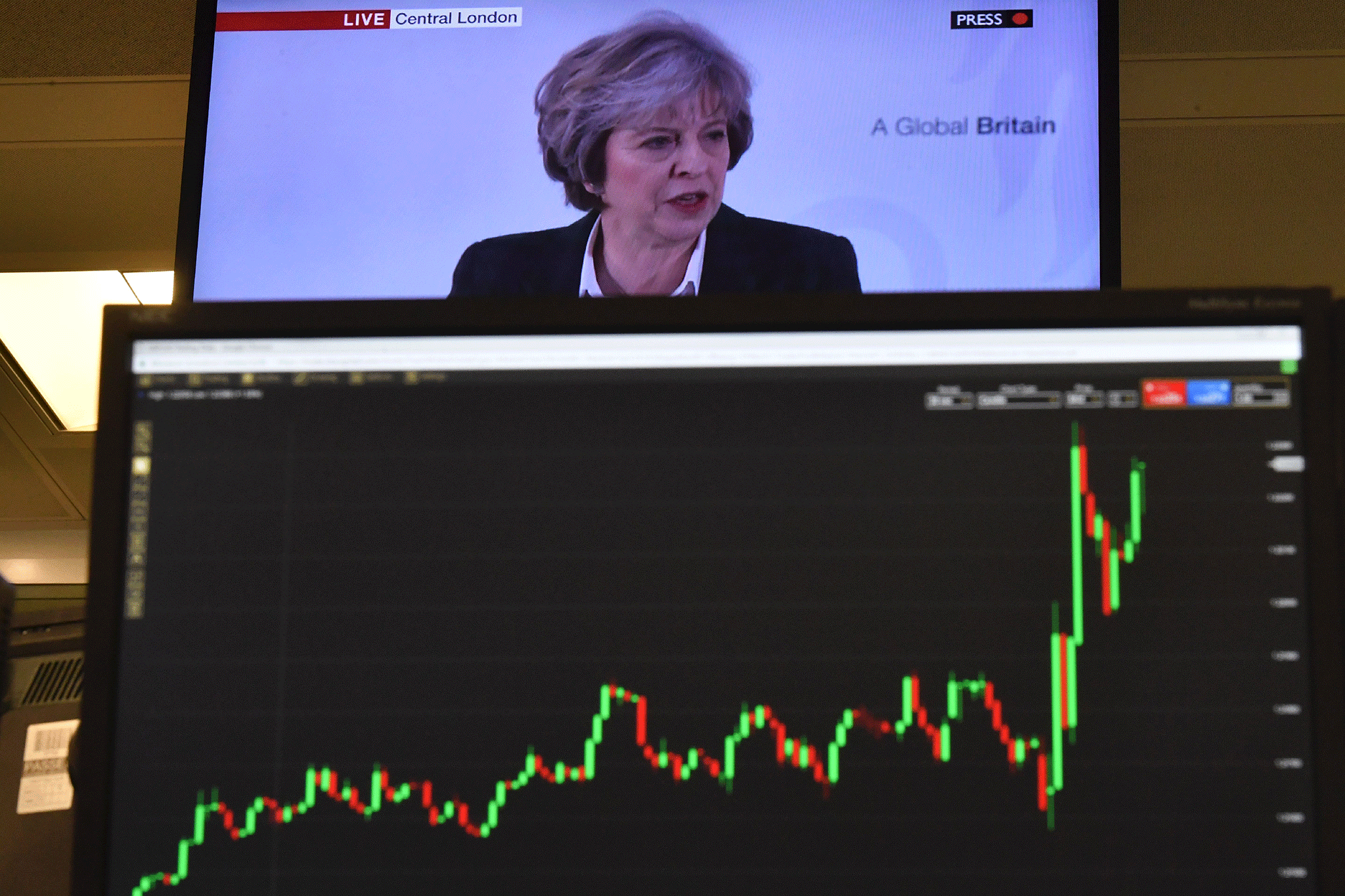The pound has slumped over the prospect of a hung parliament – should we look to the markets to predict the general election?
They are moved primarily by mood as opposed to reality, hence the failure to predict the 2007 financial crash


If there is a huge problem trusting opinion polls, then there is an even bigger one trusting the markets. But they are different. The trouble with polls is that they have to work on too little information. The trouble with markets is that they have too much.
You can see this in the past few days. The gap between the two parties has clearly narrowed and that will alter the likely result of the general election. Unless the gap widens again, which it may, instead of there being a huge Conservative majority there will be a smaller one, conceivably none at all. But it is not very helpful to say that, because the range of outcomes is too wide. You can’t buy or sell a currency or a share on the basis of the polls – for as we saw, one poll that suggested there might be a hung parliament did knock the pound for a bit, but it swiftly recovered.
There are many problems with political polling, which include the difficulty of getting a representative sample with a relatively small budget, the evidence that people lie (why tell a stranger what you are going to do when anonymity is a key element of democracy?), the complexity of the constituency system (or in the US the electoral college) and so on.
Pollsters have to make an intuitive guess at what the numbers are really saying, and often their intuition turns out to be wrong.
But the markets are the other extreme. Instead of there being a handful of boffins sitting in an office peering at the data that has been collected for them, they are the result of millions of people, conceivably hundreds of millions, around the world making what are sometimes tiny decisions. Some people spend their lives working in markets. Others do it occasionally and unwittingly. Do you buy your holiday currency now or wait until August? That has a miniscule impact on the exchange rate. Among those millions are virtual people, computers, told to respond in some way or other by a maths PhD working for a financial institution.
Huge, unbelievably huge, resources are thrown at making market decisions. So why are they sometimes so dopey? I think the best answer to that is that they are moved by mood rather than reality.
Many years ago as a young journalist I worked with a leading polling company trying to analyse what a set of financial institutions thought would happen on the markets in the coming week. We polled each of them, measured their expectations, and then fed back anonymously the results. The idea was that they would then have a rational expectation of how markets might move, which they could then act upon.
It didn’t work. Or rather it did work but only told people what the markets were already doing. It had no predictive benefit so it was, in practice, useless. No-one knows how markets will move, and mathematical models (or opinion polls) that try to predict movements have failed to do so. We are back to intuition rather than reason.
If markets cannot predict how the sterling-dollar rate will go, they certainly cannot predict the outcome of a general election. All they can do is measure the mood of the moment. They know everything that is to be known in the sense that all the information that is available goes into the price. Their purpose is different. It is not to predict, but simply to align the expectations of interested parties. In finance it is matching supply and demand. In politics it is matching the different expectations of anyone trying to predict what will happen.
The next week will be a bumpy one for the markets. Since the business and financial community would prefer the Tories to have a decent majority (and whether that is appropriate is a separate issue) expect them to strengthen or weaken as the information flows in on the likely majority. There is a twist in that the FT100 index, which represents large companies, tends to rise when sterling falls. That is because most of them have substantial overseas earnings. But do not think that the markets have any ability to predict a political outcome – anymore than they could predict the financial crash of 2007.

Join our commenting forum
Join thought-provoking conversations, follow other Independent readers and see their replies